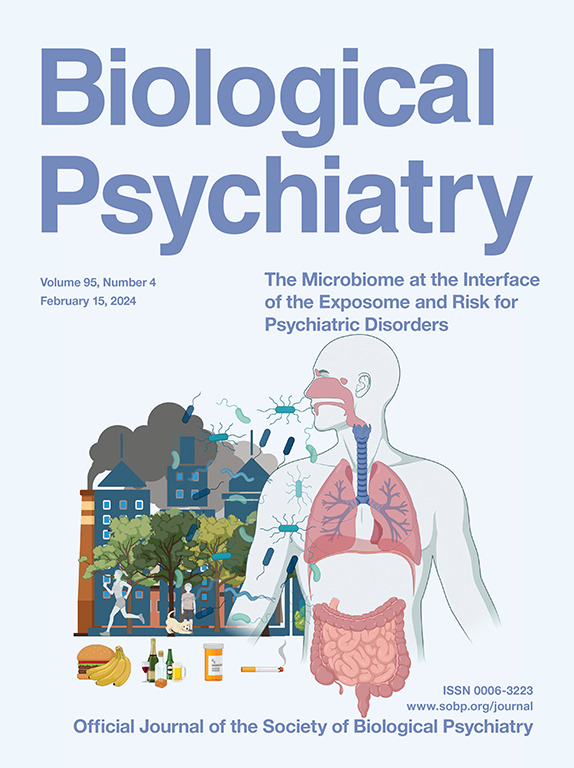The Dark Side of Empathy: The Role of Excessive Affective Empathy in Mental Health Disorders
IF 9
1区 医学
Q1 NEUROSCIENCES
引用次数: 0
Abstract
Empathy, which is typically regarded as a positive attribute, is now being critically evaluated for its potential negative implications for mental health. A growing body of research indicates that excessive empathy, particularly a high level of affective empathy, can lead to overwhelming emotional states, thereby increasing susceptibility to psychological distress and psychiatric disorders. In this review, we aim to explore the negative effects of empathy on mental health. We review both human and animal studies concerning the relationship between empathy and psychological disorders, revealing that while empathy enhances social interactions and emotional understanding, it may also heighten empathic distress and potentially contribute to the development of pain, internalizing disorders, depression, anxiety, emotional overinvolvement, burnout, vicarious trauma, and posttraumatic stress disorder. This review contributes to the broader discourse on empathy by delineating its dual impacts, integrating insights from neurobiology, psychology, and behavioral studies. This review may enhance our understanding of empathy’s complex role in mental health, offering a nuanced perspective that acknowledges both its beneficial and detrimental impacts.
共情的阴暗面:过度情感性共情在心理健康障碍中的作用。
同理心通常被认为是一种积极的特质,但现在正因其对心理健康的潜在负面影响而受到严格评估。越来越多的研究表明,过度的共情,特别是高水平的情感共情,会导致压倒性的情绪状态,增加心理困扰和精神疾病的易感性。本研究旨在探讨共情对心理健康的负面影响。我们回顾了关于共情与心理障碍之间关系的人类和动物研究,揭示了共情在增强社会互动和情感理解的同时,也可能增加共情痛苦,并可能导致疼痛、内化障碍、抑郁、焦虑、情绪过度投入、倦怠、替代性创伤和创伤后应激障碍的发展。本综述通过描述共情的双重影响,整合神经生物学、心理学和行为研究的见解,有助于更广泛地讨论共情。这篇综述可能会增强我们对共情在心理健康中的复杂作用的理解,提供一个微妙的视角,承认其有益和有害的影响。
本文章由计算机程序翻译,如有差异,请以英文原文为准。
求助全文
约1分钟内获得全文
求助全文
来源期刊

Biological Psychiatry
医学-精神病学
CiteScore
18.80
自引率
2.80%
发文量
1398
审稿时长
33 days
期刊介绍:
Biological Psychiatry is an official journal of the Society of Biological Psychiatry and was established in 1969. It is the first journal in the Biological Psychiatry family, which also includes Biological Psychiatry: Cognitive Neuroscience and Neuroimaging and Biological Psychiatry: Global Open Science. The Society's main goal is to promote excellence in scientific research and education in the fields related to the nature, causes, mechanisms, and treatments of disorders pertaining to thought, emotion, and behavior. To fulfill this mission, Biological Psychiatry publishes peer-reviewed, rapid-publication articles that present new findings from original basic, translational, and clinical mechanistic research, ultimately advancing our understanding of psychiatric disorders and their treatment. The journal also encourages the submission of reviews and commentaries on current research and topics of interest.
 求助内容:
求助内容: 应助结果提醒方式:
应助结果提醒方式:


